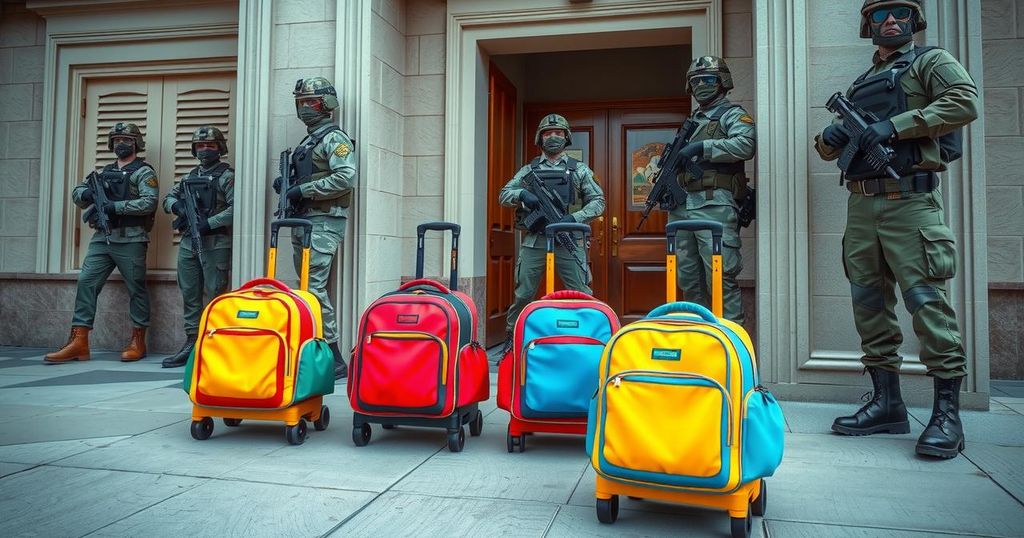Escalating Extortion Threats Transform Peruvian School Environment

Peruvian schoolchildren are facing severe threats from extortion gangs, leading to the closure of many private schools and the transition to online classes. The crisis escalated after violent attacks on institutions like San Vicente, prompting a state of emergency declared by President Dina Boluarte. Widespread fear among parents and students reflects the pervasive nature of gang violence in the educational sector, with implications for public security and governance.
In Peru, extortion gangs have increasingly threatened the safety of schoolchildren and educational staff. Initially targeting shop owners and bus drivers, these gangs have now expanded to infiltrate private schools, demanding substantial sums under threats of violence. Hundreds of educational institutions have transitioned to online classes to safeguard their communities amidst an intensifying security crisis in the country.
As Peru’s new academic year commenced in March, the San Vicente primary and secondary school in northern Lima faced a violent backlash for refusing to pay a $27,000 protection fee. In an explosive attack, the school’s entrance was damaged but fortunately left no injuries, prompting a month-long closure for its 1,200 students, who have now resumed classes under military protection.
Extortion is rampant, particularly in Peru, where local and international gangs exploit educational establishments for monetary gain. With profits from extortion surpassing those from drug and human trafficking, the situation has prompted Peruvian President Dina Boluarte to declare a state of emergency and deploy soldiers to manage public safety following a series of related homicides.
The educational sector has been severely impacted; Giannina Miranda, president of the Freedom to Educate Collective, stated that 325 private schools across Peru are indefinitely suspending in-person education due to fear of extortion. Overall, over 500 institutions have been victimized, creating an atmosphere of dread among parents and students.
One father of a San Vicente attendee described the situation as a “pandemic, but with weapons”, expressing deep concern for his child’s safety. The school has received multiple threats, including one that warned it would attack again if the hefty payment was not made, further indicating the dangers schools face.
Despite a reported decrease in extortion complaints, many victims are reluctant to notify authorities due to personal safety fears. The alarming rise in homicides in urban areas is the highest in two decades, adding pressure on Boluarte’s presidency amid growing public dissatisfaction concerning her leadership amidst this crisis.
The surge in extortion threats against schools in Peru highlights a deepening security crisis affecting numerous communities. Despite measures taken by authorities, the reluctance to report such incidents and the fears expressed by parents and students indicate a pervasive environment of fear. The situation presents significant challenges for the Peruvian government as it contends with security issues while maintaining public trust.
Original Source: www.france24.com







